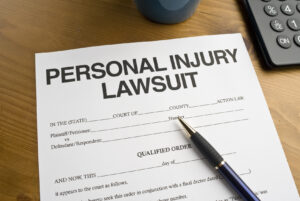Negligence

Understanding negligence is crucial when it comes to protecting your legal rights after an injury. It serves as the foundation for seeking compensation in personal injury claims. If you’ve been injured due to someone else’s actions, understanding how negligence works and proving it under North Carolina law is essential for your case.
What Is Negligence?

Negligence occurs when a person or entity fails to take reasonable precautions or actions to prevent harm to others. This failure to exercise proper care results in injury or damage. In legal terms, negligence refers to the breach of a duty of care owed to others. As a result, a victim suffers harm. Whether you are injured in a car accident, slip and fall, or due to medical malpractice, proving negligence is essential for securing your claim.
You may be entitled to compensation if you have suffered an injury because of someone’s negligence. However, it is necessary to prove negligence under North Carolina law. This requires showing the four key elements of negligence. Let’s dive into what negligence entails and how it applies to your case.
Elements of Negligence
To succeed in a negligence claim, you must prove the following four elements:
- Duty of Care: The defendant had a legal obligation to act in a way that would not harm you. This could be as simple as a driver’s duty to drive safely to protect other drivers on the road.
- Breach of Duty: The defendant failed to meet this duty. This failure can happen through carelessness, recklessness, or inaction.
- Causation: You must show that the breach of duty directly caused your injury or damages. You may not have a case if the defendant’s actions (or inaction) did not cause your injury.
- Damages: Finally, you must prove that your injuries resulted in tangible harm. This harm could be medical expenses, pain and suffering, or lost wages.
In personal injury cases, proving these elements helps establish the defendant’s negligence and their responsibility for your injuries.
Common Types of Negligence in Personal Injury Cases
Negligence can take many forms depending on the circumstances of the accident. Some common examples include:
- Car Accidents: A driver who runs a red light or drives under the influence has been negligent.
- Slip and Fall Accidents: If a store owner fails to clean up a spill and you slip, this is negligence. The store owner is responsible for not maintaining a safe environment.
- Medical Malpractice: When healthcare providers make mistakes or fail to meet the standard of care, it constitutes negligence.
- Product Defects: If a manufacturer produces a faulty product that causes harm, they can be found negligent for not ensuring a safe product.
- Premises Liability: Property owners who fail to fix dangerous conditions on their property (like broken stairs or poor lighting) can be held negligent if it results in injury.
There is a wide variety of negligence-related claims.
How an Experienced Personal Injury Lawyer Can Help
Proving negligence in a personal injury case can be challenging. This is particularly difficult when dealing with complex legal issues and insurance companies. A skilled personal injury lawyer can help you:
- Gather Evidence: Your attorney will help collect crucial evidence, including medical records, accident reports, and witness statements. This evidence will help prove the defendant’s negligence.
- Evaluate Your Damages: An experienced lawyer will assess your physical, emotional, and financial damages. This will ensure you pursue the full compensation you deserve.
- Negotiate with Insurance Companies: Lawyers know how to handle insurance companies and their tactics to minimize payouts. If negotiations don’t result in a fair settlement, your lawyer will take your case to court.
- Ensure Your Case is Properly Handled: From filing the necessary paperwork to meeting legal deadlines, an attorney will manage the complexities of your case. This will help you focus on your healing and recovery.
Having an experienced attorney on your side can make navigating your claim much easier.
The Role of Insurance in Negligence Claims
In most personal injury cases, insurance plays a key role. However, insurance companies often try to minimize payouts to avoid significant financial losses.
Many personal injury lawyers have extensive experience dealing with insurance companies. Your attorney will work hard to ensure that you receive the compensation you deserve. Their diligent work ethic helps you gather necessary evidence, negotiate with insurance adjusters, and represent your best interests throughout the process.
Contact an attorney from Chandler Volta Personal Injury Lawyers today at (704) 980-9999 for a free consultation if you want assistance with your negligence claim.
